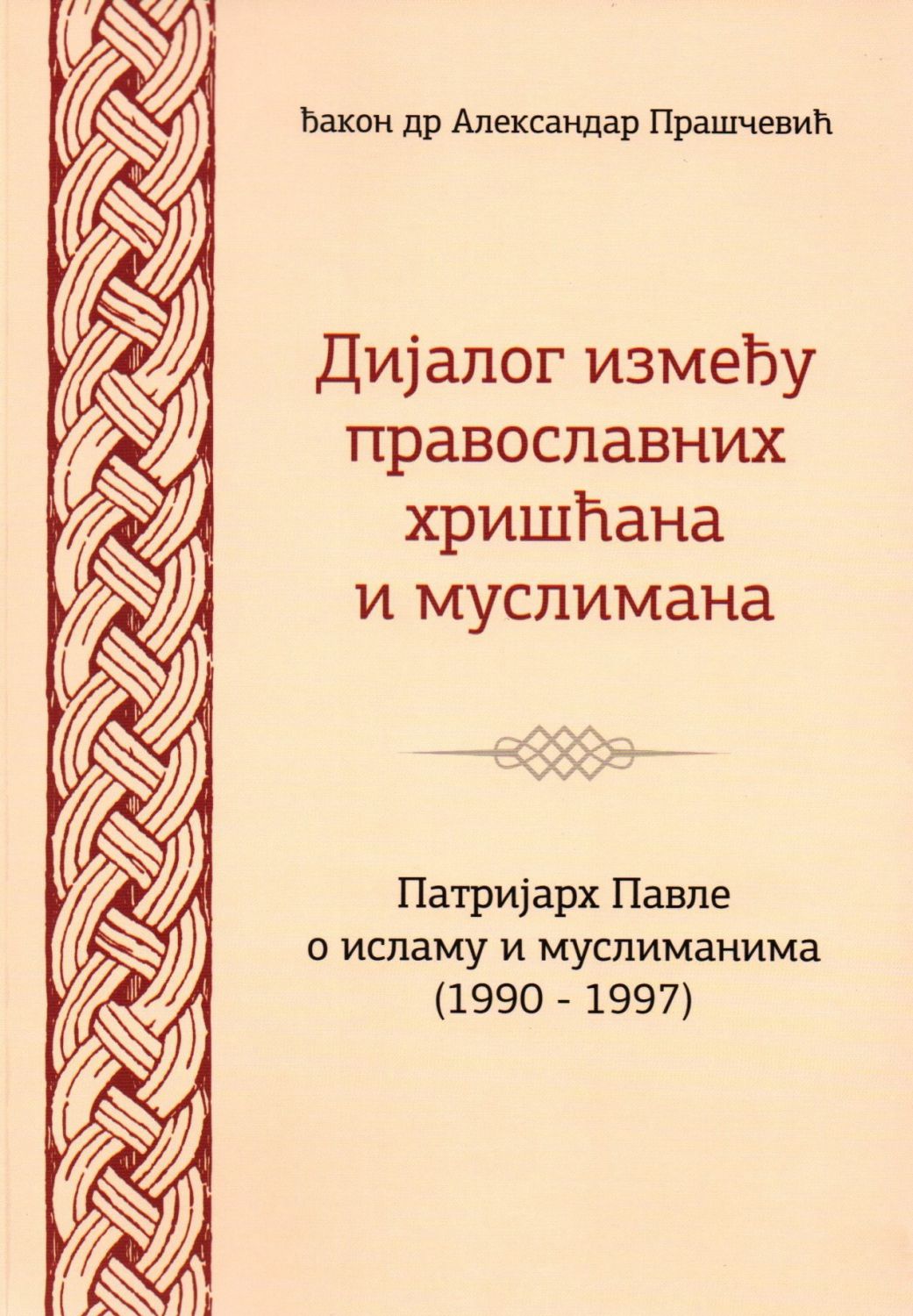Dialogue between Orthodox Christians and Muslims (3)
 Serbian Orthodox Patriarch Pavle on Islam and Muslims (1990-1997), Author: Deacon Aleksandar Prascevic, ThD., PhD.
Serbian Orthodox Patriarch Pavle on Islam and Muslims (1990-1997), Author: Deacon Aleksandar Prascevic, ThD., PhD.
The book Patriarch Pavle on Islam and Muslims written by Deacon Dr Aleksandar Prascevic, consists of 215 pages divided in seven chapters. The writing contains an introduction and an addendum. The book was written based on his researches of the official historical records relating to the Serbian Patriarch Pavle, stored in the archives of the Holy Synod of Bishops of the Serbian Orthodox Church, and covers the period from 1990 to 1997. Subject-wise, Aleksandar Prascevic’s script is an exclusive and pioneer one, as no one prior to him explicitly researched the relations of the Serbian Patriarch Pavle with Muslims, both within a general context and in the context of conflicts and disputes that happened in the territory of the former Yugoslavia. This book primarily relates to Bosnia and Herzegovina.
The broadness of this topic, which exceeds Yugoslav context and refers to the global one, is supported by the data about Patriarch Pavle’s meetings with statesmen, ambassadors and diplomats of Western and Muslim countries, the representatives of the Muslim Community, the Holy See and the Jewish Community, international organizations, that dealt with the relations between Orthodox, Roman Catholics and Muslims in the region of former Yugoslavia and the role of the Serbian Orthodox Church while establishing peace in the conflict-affected regions.
The messages rendered by Patriarch Pavle suggest that the Orthodox and the Muslim populations in the Yugoslav region needed peaceful coexistence, profound understanding and unambiguous survival. Mr Prascevic’s interpretation of the archived documents proves the pacifist role of the Serbian Orthodox Church and constant reaching out to Muslims.
For all these reasons I recommend for publishing the book Patriarch Pavle on Islam and Muslims by Aleksandar Prascevic, because this book will be imperative for studying relations between the Orthodox Serbs and the Muslim Bosnians, and between the Orthodox Serbs and the International Community, in turbulent times of external and internal break-up of former Yugoslavia.
Aleksandar Rakovic, Ph.D., Senior Research Associate
The Institute for Modern History of Serbia, Belgrade

